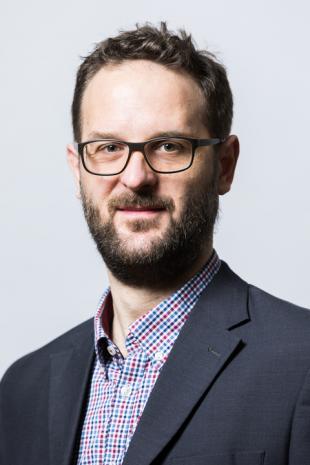Engineering Discipline:
- Chemical Engineering
Academic Qualifications:
- Diplom Technomathematik, Universitaet Karlsruhe (TH), Germany
- Postgraduate Diploma in Science in Mathematics, University of Auckland, New Zealand
- PhD in Applied Mathematics, University of Southampton, UK
Teaching:
- Engineering Mathematics
- Numerical Methods for Chemical Engineers
- Process dynamics and control
Research Interests:
Mathematical modelling of engineering systems
Mathematical modelling is an important tool in the development and operation of real-world engineering systems. Mathematical models can be used in two different application scenarios: (i) analysis of the device behaviour and (ii) predicting the behaviour of future devices. While the analysis aspect is important for the running of the device, the predictive aspect of mathematical models is invaluable for the design and optimisation of novel devices. Mathematical models of the device behaviour can give insight into the different physical effects, e.g. diffusion and adsorption, which can be used to optimise the device performance without many iterative prototype devices. This allows faster and cheaper product cycles and more importantly, more rigorous optimisation of the device; a prototype device explores only one device geometry while mathematical models allow the extensive optimisation over the complete parameter space. However, it has to be kept in mind that every mathematical model is based on assumptions and simplifications and thus describes only certain aspects of the full, physical system. The validation of the assumptions and simplifications as well as the model results is an important step in mathematical modelling.
Thermal Energy Storage (TES)
Almost half of the total energy consumption in the UK is for heat and of this over 80% is for low temperature heat. Thus the low temperature heating sector poses a significant challenge but also opportunity for the decarbonisation of the energy system. The combination of Thermal Energy Storage (TES) with heat pumps offers a large potential for efficiency improvement and CO2 emissions mitigation. However, the inclusion of TES provides a new set of challenges in the design and operation of the heating systems as well as in the integration in the wider energy system through future smart grids. Thus it is essential to develop sophisticated modelling tools and control strategies which take the user demand and the weather forecast into account and balance the end user demand of affordable and secure heat supply and the network operator demand of flexible storage.
Video about Seasonal Thermal Energy Storage
Here is a link if the inline video is not working.
Adsorption processes for gas separations
Adsorption based separations have the potential of lower energy penalty and higher productivity compared to alternative separation processes. The design of an efficient adsorption process is challenging due to the dynamic nature of the process and the large number of possible process configurations. I am interested in developing tools for the efficient numerical simulation and optimisation of adsorption processes. These tools should capture the governing characteristics of the process but should have the lowest possible computational cost. Adsorption processes have applications in Carbon Capture and Storage, air separation for oxygen concentrators, hydrogen purification and also for thermal energy storage.
CySim - General Adsorption Cycle Simulator
Specialities:
Further Information:
Projects
- Low Carbon Heating Research Network
- Multisim
- FlexICCS
Office hour
- EM2A: Monday 12:30-13:30
- Numerical Methods for Chemical Engineers: Tuesday 11:00-12:00



